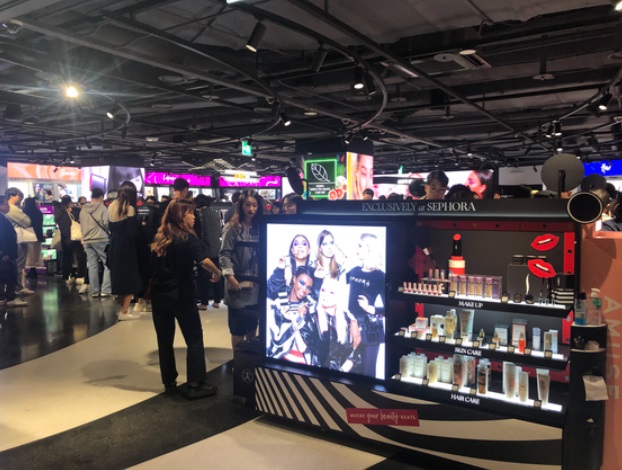Sephora, the iconic French cosmetics retailer, has announced its decision to exit South Korea, marking a significant retreat against the fierce competition. The move, detailed in a poignant Instagram post, initiates a phased closure of its operations, reflecting the challenges of adapting to local consumer preferences.
Sephora’s Departure from the Korean Market
In a significant move within the beauty retail industry, Sephora has announced its decision to exit the South Korea market, signaling a retreat in the face of intense local competition. The French cosmetics giant, part of the luxury conglomerate LVMH, shared this news through a heartfelt Instagram post, emphasizing the phased closure of its operations starting May 6. This will affect their online platform, mobile application, and all physical stores across Korea.
“It is with a heavy heart that Sephora has decided to close its operations in Korea. Sephora Korea plans to withdraw from the market by gradually terminating its online mall, mobile app store, and offline store operations from May 6, 2024.”
SEPHORA’s Instagram post
Sephora Withdraws from Competition Against Local Giants
Since its grand entrance in October 2019, Sephora aimed to make a mark with its flagship store in Seoul’s upscale Gangnam District. Further, it expanded its presence with five additional stores in prime locations. However, the journey in Korea has been anything but smooth.

The underlying challenge for Sephora has been the fierce competition, particularly from Olive Young, a dominant force in South Korea beauty retail sector. Olive Young’s expansive network grew from 1,246 stores in 2019 to 1,339 by late 2023, showcasing its deep-rooted presence and understanding of the local market. Sephora’s struggle to adapt and offer unique value propositions to Korean consumers has been pivotal in their decision to withdraw.
Industry insiders point out Sephora’s misalignment with Korean consumer preferences and local market dynamics as a critical misstep. Korean beauty products are renowned for their high quality and affordability. However, Sephora’s offerings could have stood out as significantly advantageous or distinct. This discrepancy highlights a strategic oversight in Sephora’s approach to the Korean market, emphasizing the importance of localized strategies in the global retail landscape.
Conclusion
Sephora’s withdrawal from Korea shows international brands’ challenges when entering markets with established local players. As Sephora reevaluates its global strategy, the episode underscores the essential nature of understanding and integrating into local cultures and consumer behaviors to achieve success.







